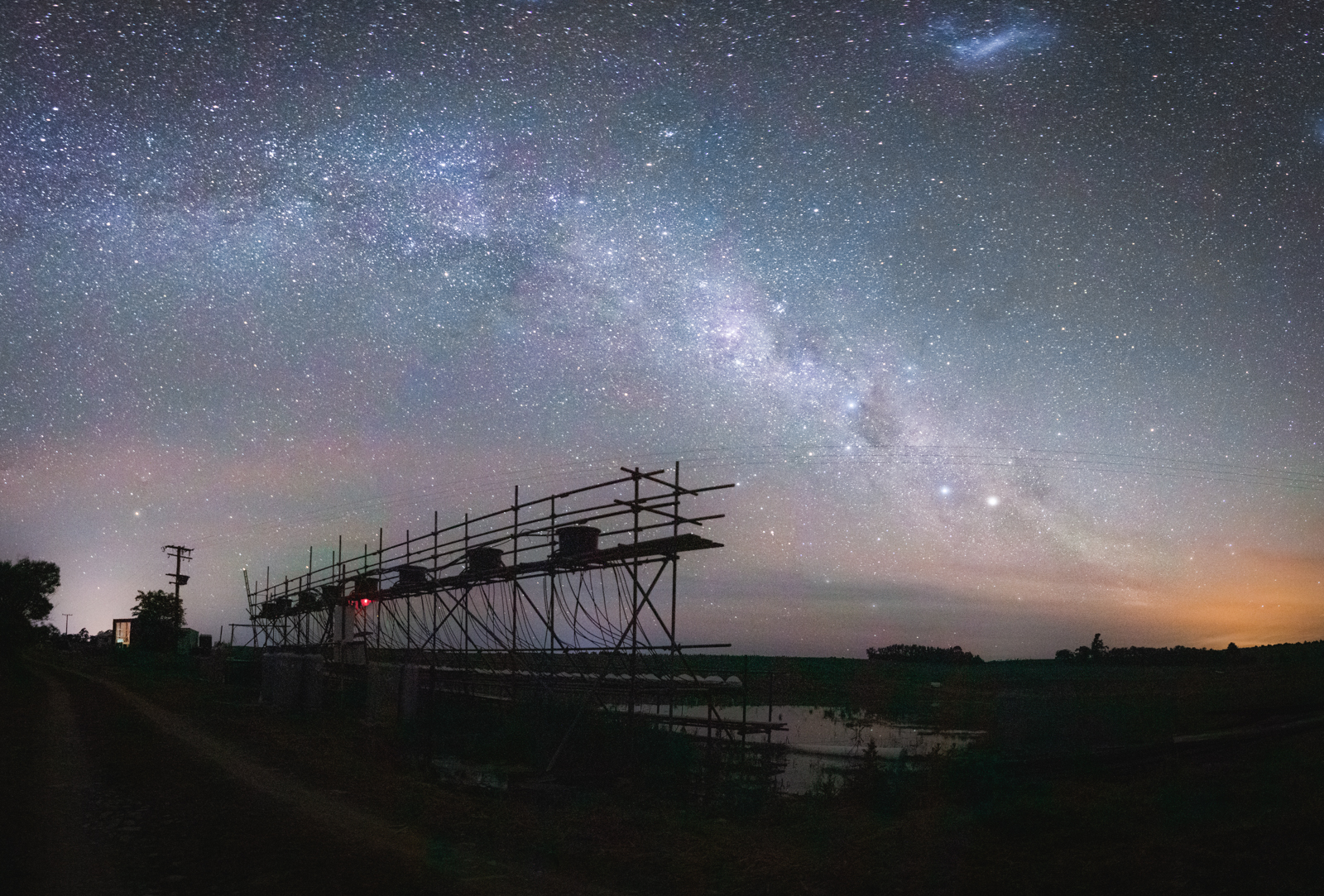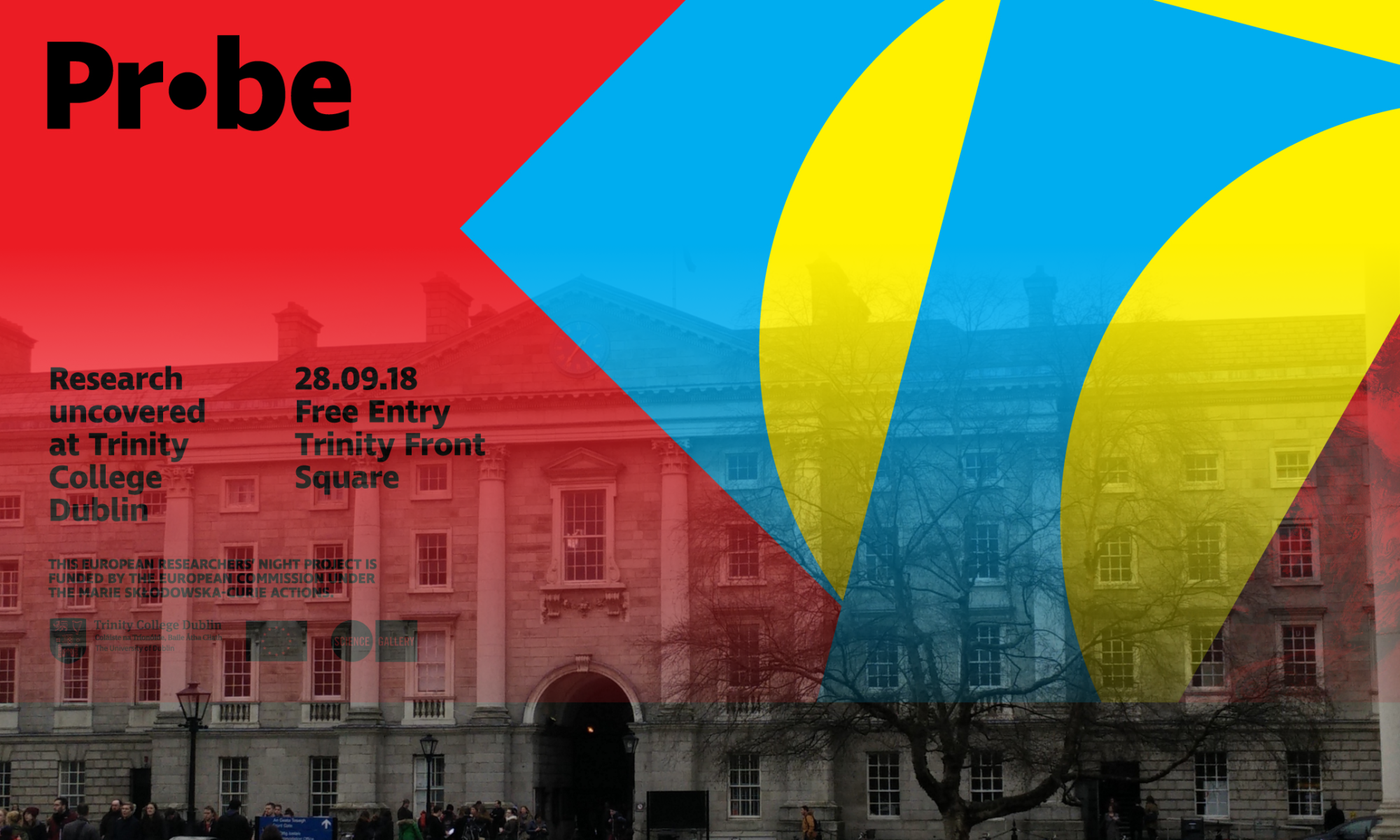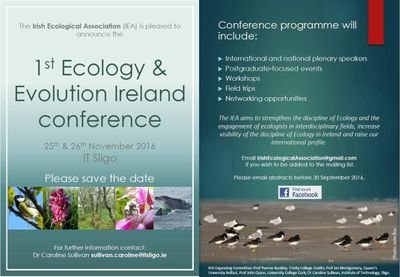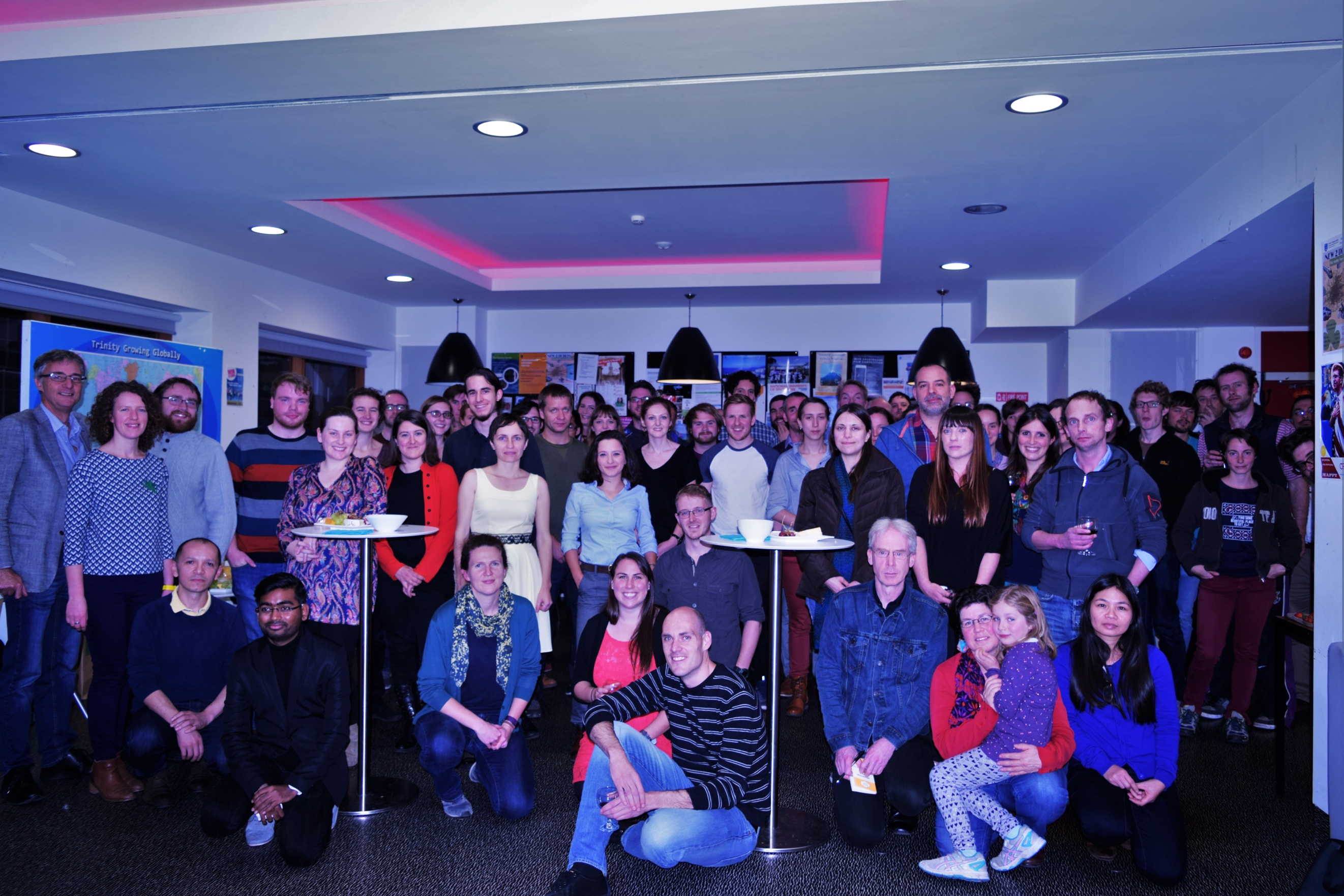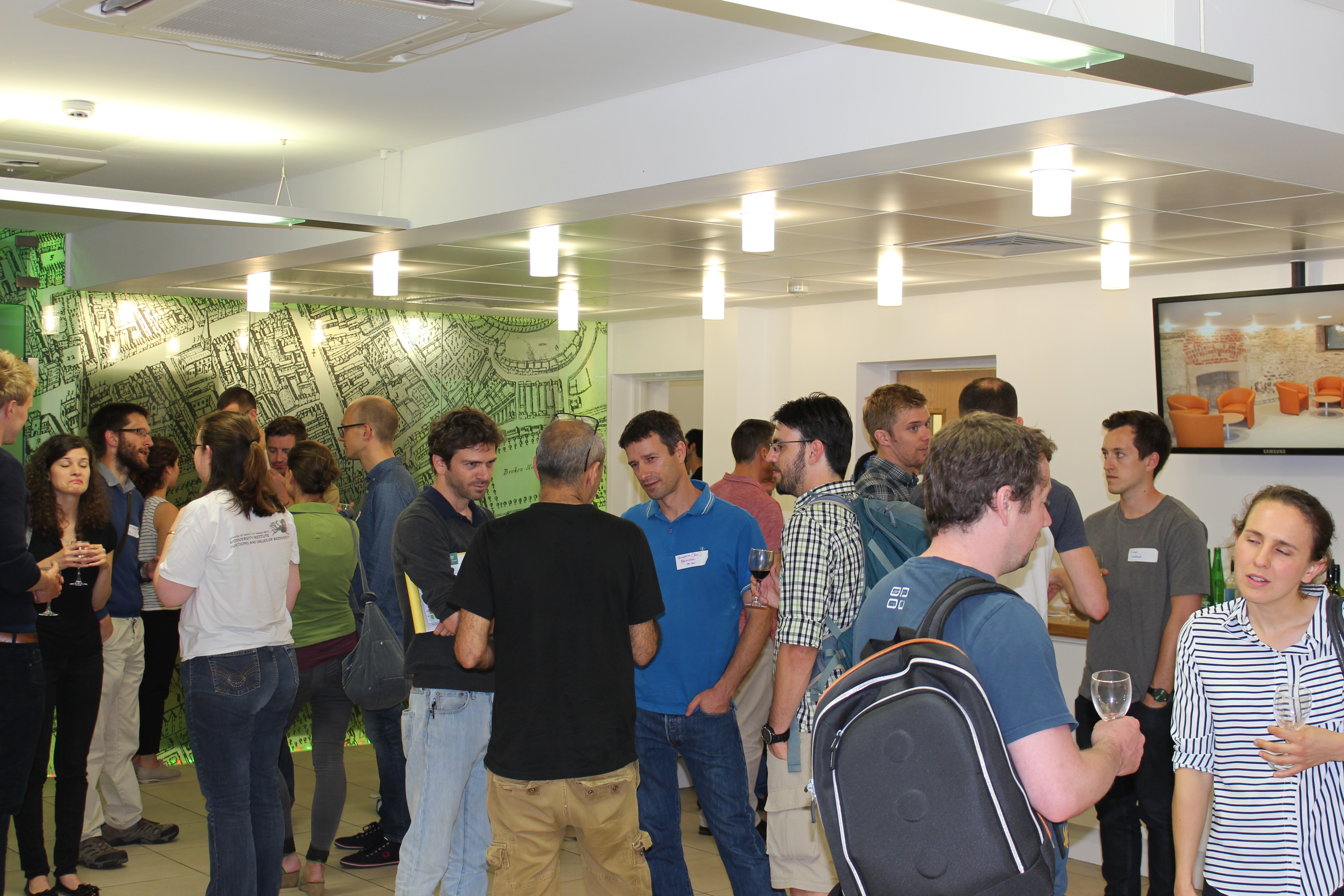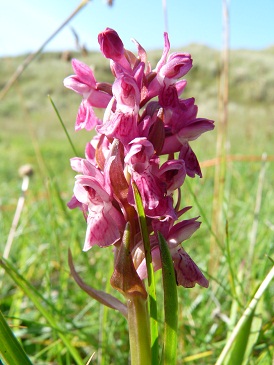Being on lockdown has me dreaming of our recent field season in New Zealand. The home of “Middle Earth” is a paradise for outdoor enthusiasts and going through the photographs from my own unexpected(/meticulously planned) journey is making my imagination run wild. Unique wildlife, towering mountains, endless waves, campsites with a view…
Meet the new editorial team for 2019/20!
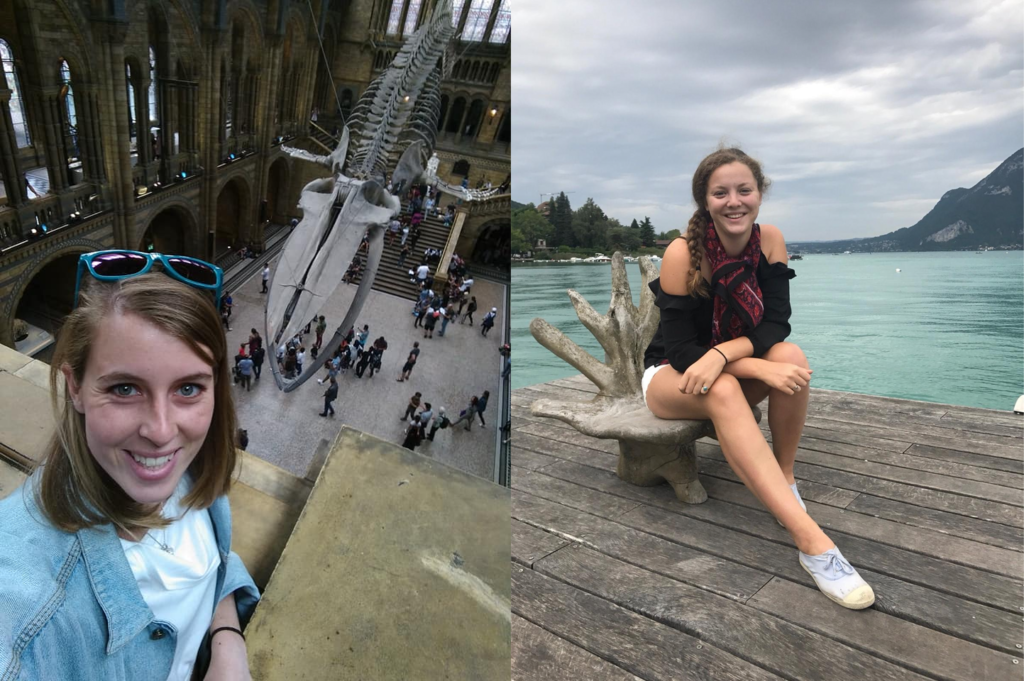
Time flies and it’s time for yet another academic year! We’re a bit late for our introduction, students are already heading into reading week but we were too busy getting over the shock that first years were born in 2001… Do you feel old too?
And with that, we wave goodbye to our fantastic 2018-19 editor, Fionn Ó Marcaigh. Thank you for your hard work and enthusiasm for sharing people’s stories! We have big shoes to fill… We say “we” because this year, you get two editors for the price of one! Let us introduce ourselves:
Continue reading “Meet the new editorial team for 2019/20!”From Worms to Wildfire: Natural Sciences at PROBE 2018
On the evening of Friday the 28th of September, the event known as PROBE took place in Front Square. Part of European Researchers’ Night, PROBE was described by organisers as “a free public pop-up festival showcasing the diverse range of academic research taking place in Dublin”. No event on Dublin research would be complete without representatives from Zoology and Botany, so Eco Evo spoke to some of the researchers bringing parasitology, fire ecology, and pollinators to the people of Dublin. Continue reading “From Worms to Wildfire: Natural Sciences at PROBE 2018”
Ecology & Science in Ireland: the inaugural meeting of the Irish Ecological Association
In the years to come, 140 ecologists working in Ireland will look back with fond memories of being part of the inaugural meeting of the Irish Ecological Association (24th-26th November). We will remember hard-hitting plenaries, compelling oral presentations, data-rich posters, influential workshops and the formation of the IEA’s first committee. The lively social events might be harder for some of us to remember… Continue reading “Ecology & Science in Ireland: the inaugural meeting of the Irish Ecological Association”
How to start a Ph.D (or how to try, at least)
There are a lot of how-tos on the internet (Thanks Buzzfeed!). You can life-hack yourself into an efficient machine, but before my first day at TCD I couldn’t seem to find a good article to put my nerves at ease. Once you’ve applied and been accepted to grad school it seems like it should all be a bit relaxed, but the night before I started I was a bundle of nerves. There are a few articles that are helpful, like this one from Next Scientist, but most articles I found are pretty vague. Though this is not comprehensive or exhaustive, a list of tips from my first few months are included below. Continue reading “How to start a Ph.D (or how to try, at least)”
Winning research – Zoology storms the Lightning Talks
Earlier this month, postgraduate students of the Zoology department compete in the fourth annual ‘School of Natural Sciences Lightning Talks’ alongside students and staff from Botany and Geology.
We all presented 120-second snapshots of our research and were judged by a panel. Judges included the Head of the School of Natural Sciences Professor Fraser Mitchell, Science Gallery’s Aine Flood and Trinity’s press officer for the Faculty of engineering, mathematics and science, Thomas Deane.
Zoology had two winners on the night, Darren O’Connell (@oconned5) for his presentation on ‘Character release in the absence of a congeneric competitor’ and myself, Rachel Byrne, on my research titled ‘Parasites of badgers in Ireland- an untold story.’
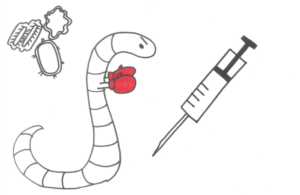
Continue reading “Winning research – Zoology storms the Lightning Talks”
Formally informal conferences
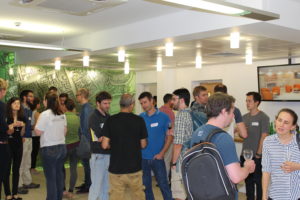
One of my favourite parts of working as a researcher during the summer (aside from quiet campuses with less students around) definitely has to be the “conference season”. Indeed, I don’t need to convince many people that conferences are one of the lively and exciting parts of doing science that rightly mix traveling, networking (and sometimes drinking) and learning about so many new things (and sometimes hangovers).
One of the problems though is that they can sometimes be overwhelming. It’s hard to find a balance between the right amount of networking (how many friends/collaborators do I want to meet and how many new ones do I want to make) and the right amount of learning (which talks do I want to attend and how much can I get from them). Although everyone has their own technique to deal with these questions, it seems to me that it boils down to the number of people attending the conference and the objectives of the conference organisers. One solution is to aim conferences towards a more manageable size with a clear emphasis on networking and learning.
One such conference is the annual BES Macro conference! As has became a happy ritual over the last 4 years, I was awaiting July with impatience for this year’s one organised in Oxford by Natalie Cooper and Rich Grenyer. As a disclaimer though, I do not consider myself as a macroecologist at all (most of my work is on macroevolution methods). So why do I go every year? I don’t even know what macroecology is! Well one of the first points is that this conference covers a vast array of topics, this year reaching far beyond the classic bird species richness heat maps with presentations on microbe populations in tree holes and sampling biases in the fossil record! The second point is because I think this conference contains all the ingredients that I think make a good conference:
First, mix different career levels:
For early career scientists like myself it can sometimes be a bit intimidating to mainly hear talks by “veteran” scientists. In fact I often think to myself just before giving a talk, how lame mine will be in comparison to the other people. Not that mixing different career levels makes my talk less lame (!), it has at least the benefit of making me feel better. It also has the undeniable benefit of making it easier to network with the big wigs if you spoke in the same session as them. At BES Macro 2016, each session was a good mix of every career level making it much more casual. Even the plenary speakers ranged from Professor Tim Blackburn to About-to-be-doctor Hannah White!
Second, make most of the talks short:
People have mixed feelings about lightning talks: from the speaker’s point of view, when you have exciting results it can be frustrating to convey your message in 5 minutes. Also these talks are sometimes more difficult to write than a classic 10-15 minutes one! However, from a listener’s point of view, think about how much more you absorb, on average, from these extra 5-10 minutes that make a classic talk? On a couple of talks: probably much more; on 2 days or more of conference: probably not that much! Besides, if 5 minutes was not enough and just peaked your curiosity, it makes an excellent opportunity to network (“Hi, I really enjoyed your talk. About that, [insert your burning question here]?”).
Third, add a nice dose of transferable skills:
Another point of conferences that can be negative is that you chain-listen to many many talks all day long. That has the benefit of giving a good overview of your field of research but can also make you slightly sleepy! One solution to break this continuous rhythm of talks is to do it with discussion sessions that can either be about transferable skills or about big questions in the field. For example, at BES Macro 2016 we had an excellent discussion session on reproducibility and another on the classic “What is Macroecology?” question.
And finally, don’t forget to add some rants:
What makes a good conference lies also in how much you feel part of the field of research covered by the conference. One way to convey that is to be part of or at least listen to the “hot” debates shaking the field. In this conference for example, we had two “official rants” by Shai Meiri and Adam Algar on what is going wrong in macroecology (but still how much cool work is done).
And of course, the main ingredient is the attitude of the people towards the conference. As Rich Grenyer put it in his welcoming introduction: “this conference is formally informal.”
Hope to see you at the next conference!
Photo credit: Thomas Guillerme
Making the most out of a post doc interview
Making the most out of a post doc interview
(Even when you don’t get/want the job!)

So you’ve just finished your PhD and sent out a frantic flurry of post doc applications, amidst all of the excitement, you’re invited to interview; how should you proceed? Below are some of the things I learned from my first post doc interview recently:
A couple of weeks ago I embarked on a new first for me; my first interview! I grant you that it is unusual to be having one’s first interview at the age of 26; I had worked, but never interviewed in the formal sense, with a panel of strangers. There seem to be three broad classes of post doctoral jobs advertised; a) those advertised by a particular lab, usually with a particular person, where you are interviewed directly with the person you are hoping to work for. b) Grants like IRC or the Wellcome trust where you write a proposal and often, while a panel reviews this, you never have to actually interview in person. c) The kind I’ve just done; where a centre or department gets money and so you are interviewed by a panel from the department (and university in general sometimes), but not by the person you are applying to work with. With some trepidation I accepted the interview. I wasn’t sure at this stage that I actually wanted the position if offered but decided to take the opportunity to interview for experience alone at any rate. Here are some of the things that I learned and would advise (though remember, this is an n=1!):
Before the interview:
- If the position is somewhere that you need to fly/travel to, arrive a day early if you can. This will relieve some of the stress of any travel delays and help get you in the zone
- If the person you would be working with is not actually going to be on the panel try to arrange a meeting with them before the interview (day before if possible). This gives you the chance to meet if you haven’t done so before but also get their opinion as to the position. I got lots of great tips when I did this about what the panel may be looking for but also some valuable insights.
- Tying in with the above, if you can visit the building it is going to be in beforehand, particularly a university, it really helps to get a feel of the place, the workspace and see whether this is somewhere you would enjoy spending your time.
- Meet the other candidates! I know that this is perhaps a little controversial and may not work for everyone, but I ended up meeting some of the other candidates going for the job while I was there and found it really useful for a few reasons. Firstly, and mainly, it helps to remind you that these are people too, also nervous, which certainly made me feel more comfortable, knowing others were in the same boat. The other big reason is that it enables you to meet people at a similar stage and potentially with similar interests to you, which is always nice!
- Try not to fret too much about whether you want the job until/if you’re offered it! This is something I really struggle with but the truth it, you owe it to them to give a good interview, particularly if they are paying for you to come over, but after that, then it is entirely up to you and you can pick and choose. It is you that you have to put first and if that means that after all you don’t want the job, that’s ok!
- Do your research! It certainly helps if you already have a connection to the place but doing some research on both the department and the people in close proximity; who work on something similar or complimentary to what you are proposing. It helps for this to think outside the box too; I referenced a Prof in Physics even though this was a biology post.
- Chat to the admin staff, it is usually they who have gone to the effort of timetabling the whole affair and booking rooms for you, so make sure to thank them and also ask what it’s like to work there. They have nothing to gain/lose in this so they will be very honest!
During the interview:
- Be friendly! Whatever the outcome of the interview or your decision, these are potential future collaborators and leaving a good impression will mean a lot.
- Take a moment to respond to questions. A moment considering your response can come across more confident than leaping into an answer before they have finished asking.
- I was always taught that in a conference presentation, when asked a question, to answer the room rather than just the questioner. Certainly make them your primary contact but being sure to address the room as well. I think this works for interviews too, ensuring to engage the whole panel in your answers, I think this speaks to your communication skills and also just generally keeps everyone together.
- Name drop to wazoo! Talk about the people in the department or School that you might work with or seek advice from, talk about other people already in your network that might not be in theirs and how you might get them to contribute for seminars etc.
- Where will you be in 5 years? The dreaded question! Be honest here; in my case I had just submitted my PhD corrections the week before (a point one of the panel chuckled at during the interview…), so I did not have the grandiose expectation that I would be in a faculty position running my own lab in five years time, and I said as much. I think this can quickly be turned into a positive saying that this is an exciting time where you can see what you like and build up skills so that in five years you might have in mind the research themes that you want to develop for when you are going to look for a faculty post.
- After the interviews there was what I described to myself as an “awkward mingle lunch”, where members of the faculty and candidates had the chance to mingle over muffins. At first I thought this was a terrible idea and was tempted to run away but actually it turned out to be really fun. Everybody was more relaxed and you could get a little insight into the social atmosphere of the place, see if you think you’d be a good fit.
Good luck!
Ps. I did get offered the post and decided to take it!
Author: Dr Deirdre McClean (@deirdremcclean1)
School of Natural Sciences Postgraduate Symposium 2016: Part 3/3
![image[3]](http://www.ecoevoblog.com/wp-content/uploads/2016/04/image3-300x300.jpg)
Aoibheann Gaughran (@Aoibh_G)
Supervisor: Nicola Marples
Title: How population density influences social mammal ecology: A case study of the European badger.
The local density of a population of social mammals can affect many aspects of its ecology including social structure, mating systems, dispersal behavior, territorial behavior and the dynamics of disease. Scientists and policy-makers need a comprehensive understanding of the local population density as this may dictate the most effective management strategy. The European badger provides a particularly good species to investigate the effects of population density on other density parameters because its density varies by orders of magnitude across its wide geographic range. Further, it acts as a wildlife reservoir for bovine tuberculosis in the UK and Ireland, where it is subject to control operations. Currently, a haphazard classification of local population densities hampers a clear understanding of the badger’s ecology, leading to inappropriate management systems. We have conducted a meta-analysis to investigate the relationships between social group size, territory size, and group density and population density in badgers. We demonstrate that population density fundamentally alters badger ecology, affecting the interactions both within and between social groups. We also propose a classification system for densities of the European badger which highlight important ecological differences between populations across the density spectrum. Our findings provide a more cohesive picture of the species’ ecology across its range, facilitating appropriate targeting of disease management and conservation regimes.
Michelle McKeon-Bennett
Supervisor:Trevor Hodkinson
Title: Characterisation of endophytic microbes within Sphagnum magellanicum from Clara Bog, County Offaly, Ireland: Implications for enclosed environment hydroponic systems in Space.
This work investigates potential mutualistic relationships between endophytic microbes and species of native Sphagnum moss sampled from Clara Bog, County Offaly, Ireland. The application of the ion-exchange ability of Sphagnum moss to water remediation and recourse recovery within an enclosed hydroponic system has been investigated by the author at NASAs Space Life Science Laboratory, Kennedy Space Centre, Florida. While this research indicated that Sphagnum could be utilized in this manner, it resulted in yet more questions, specifically in relation to microbial interactions and growth mechanisms within the Sphagna:plant test bed.
It is postulated that endophytic microbes growing mutualistically within S. magellanicum may be responsible for (a) anti-algae and anti-microbe effects within the hydroponic system and (b) increased nutraceutical content within the associated salad crop. Microbial DNA isolated from 100ug samples of S. magellanicum, was extracted and used to identify microbial endophytes using standard barcoding primers. Genetic fingerprinting is being utilised to type the endophytes. Isolation and culturing protocols from Sphagnum plants have been developed and applied for the characterisation of microbial species during hydroponic systems using S. magellanicum as a growth medium. Further investigation of mutualism between identified endophytes and a cultivar of Lactuca sativa known as ‘Lollo Rosso’ is ongoing.
Alex O’Cinneide
Supervisor: Anna Davies & Martin Sokol
Title: The effectiveness of renewable energy policies in encouraging renewable energy generation.
Over the last twenty years the EU and its individual countries have been engaged in implementing policies to increase the use of renewable energy (RE) as a generation source. Motivations for this support of RE generation include, but are not limited to, concerns over climate change and pollution, national security risks associated with fossil fuels, and a wish to increase the competitive position of RE in markets which have been traditionally dominated by carbon based power. The issue of climate change and renewable power’s role in addressing this complex challenge has, in particular, been brought into sharper focus following agreement on emissions pledges from all the EU countries, and a new target of keeping global warming below 1.5C in December 2015 in Paris at COP 21; targets which will require a material response by policy makers throughout the EU. An understanding of what policies have been most effective in increasing RE is therefore critically important in designing new schemes, a comprehensive analysis of which has not been completed to date. I am therefore conducting a comparative analysis of the effectiveness of RE policies in encouraging RE generation (solar and wind, which given their advantages in cost and deployment have been the dominate focus of policy) across the EU from 1995 to 2015, with a primary focus on four countries of contrasting contexts, Ireland, UK, Italy and Portugal. While several studies have attempted to determine the effectiveness of various policies in various countries, these have been limited in scope and have not attempted to account for the variety of policy design features or individual country, market and key actor characteristics that influence policy strength. Adopting an energy transitions theoretical framework, this research would constitute the first study undertaken to determine how policy has effected the growth of renewables across Europe.
Anne Dubéarnès
Supervisor: John Parnell & Trevor Hodkinson
Title: Systematics of the genus Embelia Burm.f. (Primulaceae – Myrsinoideae)
Within the Primulaceae family, the Myrsinoideae form a highly variable tropical group, ranging from climbers and shrubs to trees, and characterised by the presence of dark dots on the leaves and fruits. This subfamily contains over 1300 species, divided into approximately 40 genera. Many of these genera are in need of taxonomic revision, as their limits are poorly defined and sometimes rely on ambiguous characters. Among these genera is Embelia, a genus of climbing shrubs distributed mostly in South and South-East Asia, tropical Africa and Madagascar. Embelia displays extensive morphological variation – especially regarding the position, shape, size and merosity of the inflorescences and flowers. It is distinguished from other Myrsinoideae only by the climbing habit, and the relationship with morphologically similar genera has not been critically evaluated yet. The last monograph of Embelia by Mez (1902), recognised eight subgenera and 92 species, but the total number of species is currently estimated at 150-200, and the subgenera used by Mez must be assessed and refined. My project aims to combine morphological and molecular data in order to test the monophyly of Embelia and to provide a taxonomic framework of the subgenera.
Eoin Mac Réamoinn
Supervisor:Cliona O’Farrelly & Paula Murphy
Title: Toll-Like Receptor Gene Expression During Early Murine Embryonic Development.
Toll-like receptors (TLRs) are renowned for their fundamental roles in immunological surveillance and response initiation. While TLR proteins in invertebrate species, such as Drosophila, carry out functions in the immune system and in “building” the body plan in the embryo, such non-immune functions have not been thoroughly investigated in mammals. Although TLR genes have duplicated independently in these lineages, and may therefore have diverged in aspects of their functionality, limited studies have recently reported the expression of TLRs in the developing mammalian embryo (Kaul et al., 2012). We report a systematic study of Tlr gene expression in early to mid-gestational murine embryos using whole-mount RNA in situ hybridization and 3D imaging (using Optical Project Tomography), the combination of which has allowed us to record the precise tissues and stages at which these genes become expressed. We have found that the expression of these receptors is particularly enriched within the central nervous system with many Tlrs displaying complementary expression patterns in developing neural tissues, as is the case with Tlrs -1, -5, -6, and -7 in the neural tube at embryonic day 10.5. These findings are in line with experimental data showing that Tlrs -2, -3, and -4 can influence neural progenitor cell proliferation and self-renewal (as reviewed in Barak et al., 2014). In addition to the expression data we have generated, whole-transciptome data is being mined to build a comprehensive picture of Tlr activity during embryogenesis and will aid in the building of specific hypotheses for functional testing.
School of Natural Science Postgraduate Symposium 2016: Part 2/3

Aoife Delaney (@Ifa_Dee)
Supervisor: Jane Stout
Title: Do principals of cross congruence apply in a naturally disturbed habitat?
Cross congruence is a measure of the degree to which diversity (number or composition of species) of different taxa follow broadly similar patterns in response to environmental conditions. In situations where cross congruence is strong, measuring the diversity of a single taxon can provide information regarding overall diversity, and this has led to the development of indicator taxa. Indicator taxa may be used to indicate general patterns of biological diversity or environmental conditions, often with the inference that where the environmental conditions are favourable for one taxon, other target taxa will benefit. The use of indicator taxa has obvious economic appeal, but cross congruence has been shown to vary greatly in different studies. Habitat heterogeneity and environmental stress can reduce the correlation of diversity among different taxonomic groups.
Within the EU, states which have signed up to the Habitats Directive (Council Directive 92/43/EEC) monitor the condition of habitats of conservation concern (Annex I habitats) using standard methods and report their results to the European Commission. Indicator species are used as part of this habitat assessment. Dune slacks, an EU Annex I habitat, are temporary ponds in sand dunes which can persist for long periods, many having been formed as part of the initial dune-building phase. Despite being stable physical features, they experience both environmental stress (annual flooding and desiccation) and temporal habitat heterogeneity, and this raises questions: do principals of cross-congruence apply here, and are indicator species effective? This study compared patterns of diversity among three different taxonomic groups, to test whether cross congruence was observed. Communities of plants, snails and water beetles in twenty-four dune slacks in Ireland were compared using diversity indices and ordination techniques. Dune slacks were assessed on the basis of the indicator species used in reporting to the European Commission, and the biological assemblages of sites which passed and failed the assessment were compared. The results of this research will help to evaluate current monitoring techniques which are in use throughout the EU and guide monitoring approaches for dune slacks in Ireland.
Qiang Yang (Marvin) (@MarvinQiangYang )
Supervisor: Ian Donahue & Andrew Jackson
Title: Stronger perturbations increase the complexity of ecological stability
The stability of ecosystems determines the sustainability of the biological resource and services that nature offers us, and an understanding of mechanisms and drivers of ecological stability has vast implications for the sustainability and management of natural resources as well as the protection and restoration of ecosystems. Much effort has been contributed to understanding the factor that determines the stability of biological communities. A challenging aspect of stability is its many components, including asymptotic stability, resilience, resistance, robustness, persistence, variability and so on, but most of the previous research failed to analyse ecological stability from an comprehensive angle and we know remarkably little about the mechanisms underpinning relationships among components of stability. Therefore, focus on single stability elements may cause an underestimate of the “real stability” of ecosystems. Here in our research, by simulating the dynamics of 13 four-species food webs following perturbations varying in strength, we show that stronger perturbations decouple the relationship between stability components, i.e. that the efficacy of the single stability element in representing the general character of ecological stability becomes lower under strong perturbations. It is therefore necessary to investigate ecosystem stability from multiple angles, especially under strong disturbance frequently shown in real nature. The decoupling effect of perturbations on the multidimensionality of ecological stability is universal across most of the 14 food-web motifs in our research, implying a similar pattern in more complex large ecological networks.
Alewynne McGeever (@AlwynneMcGeever)
Supervisor: Fraser Mitchell
Title: Population dynamics of Pinus and Ulmus in Europe during the Holocene.
This work investigates and compares the population dynamics of Pinus and Ulmus in Europe, during the Holocene, at varying temporal and spatial scales, by using recently developed and novel modelling methods. The first component characterises the European-wide post glacial rise and mid-Holocene decline experienced by both genera. Pollen data was extracted from 330 sites on the European Pollen Database (EPD). The depth of rise and decline events for each genus in each site core was defined by applying a spline curve, to remove stochastic noise from the pollen data, and identifying the range of depths along which the pollen values increased or decreased.
The R package Bchron was used to calibrate radiocarbon dates and produce an age-depth model for each site, using stochastic linear interpolation and Monte Carlo methods. The age-depth model data was applied to the event depth range to produce a probability distribution of when the rise and decline events occurred.
The second component characterises Ulmus and Pinus when they were abundant on the European landscape. Depth and magnitude data of maximum pollen values for both genera were gathered from the EPD. The age-depth models were used to determine the age of the maximum pollen value depths.
These data were then plotted on maps and empirical Bayesian kriging was used to interpolate the spatial and temporal dynamics of these population events in the two tree genera. This work, therefore, presents novel techniques to quantifying tree population dynamics, and also provides insight into the specific dynamics of two major tree genera in Europe.
Dongwei Zhao
Supervisor: John Parnell & Trevor Hodkinson
Title: Phylogenetics of Camellia (Theaceae) in Indochinese Peninsula
Tea, camellias and oil camellias from the genus Camellia L. (Theaceae) are commercially highly important. About one third of all known Camellia species occur in the Indochinese Peninsula, of which half are endemic. Many new names of Camellia are still being described from this area, which may suggest that it was previously under-collected. Almost no work, however, has focused on the phylogenetics of Camellia in this area. This project aims to address these issues using morphological and molecular approaches. Morphological studies, consisting of a comparison and description of various macro-characters of specimens and palynological analyses, will be undertaken to clarify the boundaries of species in this notoriously variable genus. DNA markers derived from nuclear and chloroplast genomes will be selected to generate molecular sequence data, which will be used to reconstruct a robust phylogenetic tree. A new classification of this genus could then be proposed based on both morphological and molecular data. Species that have potential to supply new traits to the cultivars of tea, camellias and oil camellias could also be identified.
Conor Owens (@conorhpwns )
Supervisor: Fraser Mitchell & Jane Stout
Title: Biodiversity in willow evapotranspiration systems for wastewater treatment
Constructed wetlands are increasingly seen in Ireland and abroad as a solution to the on-site treatment of wastewater from domestic and other sources in rural areas. They are likely permanent features in our landscape that will proliferate into the future. Willow evapotranspiration systems are a subtype suitable for application in areas with low permeability subsoils. These systems are often promoted as having a beneficial role with respect to biodiversity but this has not been rigorously evaluated. This project aims to assess the plant and invertebrate biodiversity of these systems and the contribution they make to the biodiversity of the wider landscape. The factors driving biodiversity in these systems are being investigated and thus this project will provide management recommendations to maximise this biodiversity. This project involves cross discipline collaboration, drawing on expertise from both the TCD School of Natural Sciences and the TCD School of Engineering.

